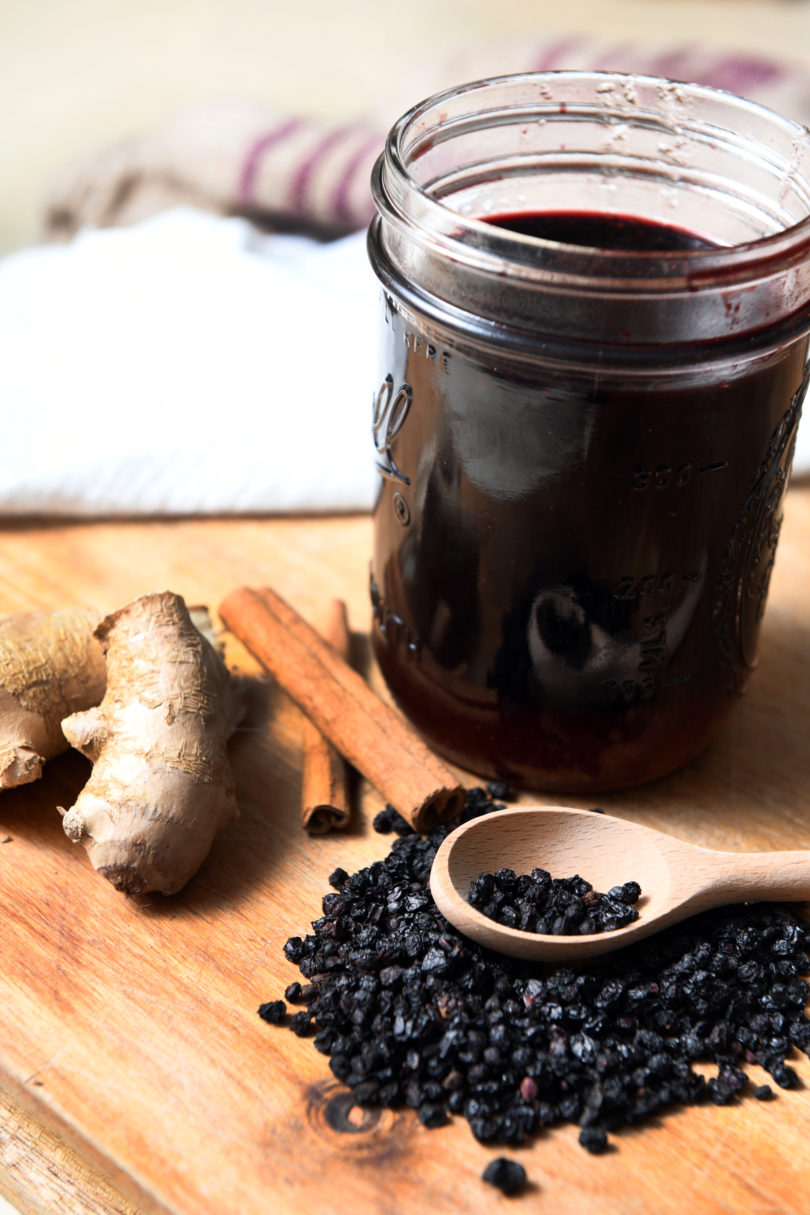Elderberry Uses:
Elderberries can be used as/for: alterative, anticatarrhal, anti-inflammatory, antispasmodic, antiviral, decongestant, digestive, nervine, rejuvenative, tonic, immunity
It Helps Fight:
colds, coughs, flus, herpes simplex virus (HSV), minor constipation, respiratory infections, rheumatism
Good To Know
The elderberry plant has been around since 9,000 BCE. By 77 CE, the medicinal properties of the plant were well known and it was referred to as the “medicine chest of the country people” due to its widespread use.
Antioxidants can help combat free radicals, restoring balance in the body. Luckily, these berries contain high amounts of antioxidants, which may reduce the risk of diseases such as cancer and diabetes.
100 grams of these berries contain up to 40 percent of the daily recommended intake of vitamin C and a quarter of the daily recommended intake of fiber.
Dried flowers can be used to make tea, or fresh flowers can be dipped in batter and fried to make elderflower fritters.
Berries can be stewed down to make syrups, jams and chutney to use on pancakes, oatmeal and toast!
Fight the Flu — elderberry extract has been shown to reduce the severity and length of influenza.
DIY: Elderberry Syrup
Ingredients:
- 4 cups pure cold water
- 2 cups dried elderberries
- 5 cardamom pods
- 2 cinnamon sticks
- 2 tablespoons fresh grated ginger (or 2 teaspoons dried ginger root)
- 1 tablespoon echinacea root
- 12 whole cloves
- 1 cup raw honey (substitute this with maple syrup, vegetable glycerin or another sugar if making for a baby under 12 months)
Directions:
- Combine everything but the honey (heating honey up past a certain temperature can cause it to lose all of its natural antibacterial/antiviral properties).
- Bring to a boil, then reduce heat and allow herbs to simmer for 30 to 40 minutes.
- Remove from heat and mash the berries in the liquid mixture.
- Strain the berries and herbs through cheesecloth or strainer and squeeze out the juice.
- Measure the liquid and add an equal amount of honey. Mix honey into the strained juice and stir until completely melted and mixed together.
- Store in a glass bottle or jar in the refrigerator. This homemade elderberry cold and flu syrup will keep for up to 6 months in the fridge.
Although using herbs such as elderberry can help the body and even treat disease, they can interact with other herbs and medications and sometimes even trigger side effects. So before trying any new herbs, you should always talk to your health-care provider first.
A few things to keep in mind with elderberries:
- Do not use unripe or uncooked elderberries, which could be poisonous.
- Pregnant and breastfeeding women should avoid elderberries.
- Transplant patients should not take elderberries.
- Use caution if you have an autoimmune disease, such as rheumatoid arthritis or lupus, as it may stimulate the immune system.
Elderberry may interact with:
- Diuretics
- Diabetes medications
- Chemotherapy
- Laxatives
- Theophylline
- Corticosteroids
- Drugs used to suppress the immune system
Source: Milton S. Hershey Medical Center
Recommendation: A teaspoon or two daily for general wellness and 2 tablespoons every couple hours if you are unwell.
**Warning: The stem and leaves of the elderberry plant are toxic and should be removed before consuming. Also, berries must be fully ripe and cooked before eating. If you have any pre-existing health conditions, check with your doctor before consuming elderberries.







